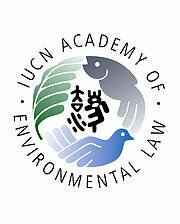Instructors looking for a good overview of climate geoengineering options should consider David W. Keith’s chapter in Climate Change Science & Policy (Schneider, et al., eds. 2010) (Chapter 49, Engineering the Planet).
Among the key take-aways from the chapter are the following:
- Geoengineering is “intentional, large-scale manipulation of the environment.” Environmental change must be the goal rather than a side effect, and intent and effect of manipulation must be large in scale;
- Two primary geoengineering methods are adding aerosols to the atmosphere and construction of giant shields in space to scatter sunlight.
- While sulfur injection geoengineering would mimic impacts of other anthropogenic activities, e.g. coal combustion, a key distinction is that this intervention would be intentional, opening “a new chapter in humanity’s relationship with the Earth;”
- The Presidential Science Advisory Committee report submitted to President Johnson was not only the first major government policy document to draw attention to potential impact of carbon dioxide emissions on climate, but that it also offered only one potential response, which was dispersing reflective particles in the atmosphere;
- Sulfur injection schemes would cost roughly a fact0r of ten less than mitigation options to address climate change. Such options could be in the reach of rich individuals or foundations;
- While some studies indicate that sulfur injection could adversely impact the ozone layer, the use of absorbing aerosols could offset some or all of these effects
- Space-based sunshields would have fewer and more predictable side effects than aerosol injection
- Just as safer cars may encourage more aggressive driving, geoengineering options could reduce incentive to cut emissions. However, geoengineering might be necessary if aggressive mitigation strategies prove to be insufficient, e.g. if climate’s sensitivity to carbon dioxide proves greater than projected or our mitigation measures still fail to prevent rapid deglaciation and substantial sea level rise. Geoengineering shouldn’t be viewed as a substitute for mitigation, because to do so would require an ever growing scale of technological compensation to offset growing carbon dioxide measures. Geoengineering could be used in conjunction with mitigation to reduce risks of climate change during the period of peak carbon dioxide concentrations;
- It’s misleading to argue that we shouldn’t pursue geoengineering options because of the impossibility of predicting systemic responses. Should concentrations of greenhouse gases rise to 600ppm, it’s unreasonable to argue that the risks of 600ppm along would be larger than the risks of 600ppm and deployment of a geoengineering scheme.

